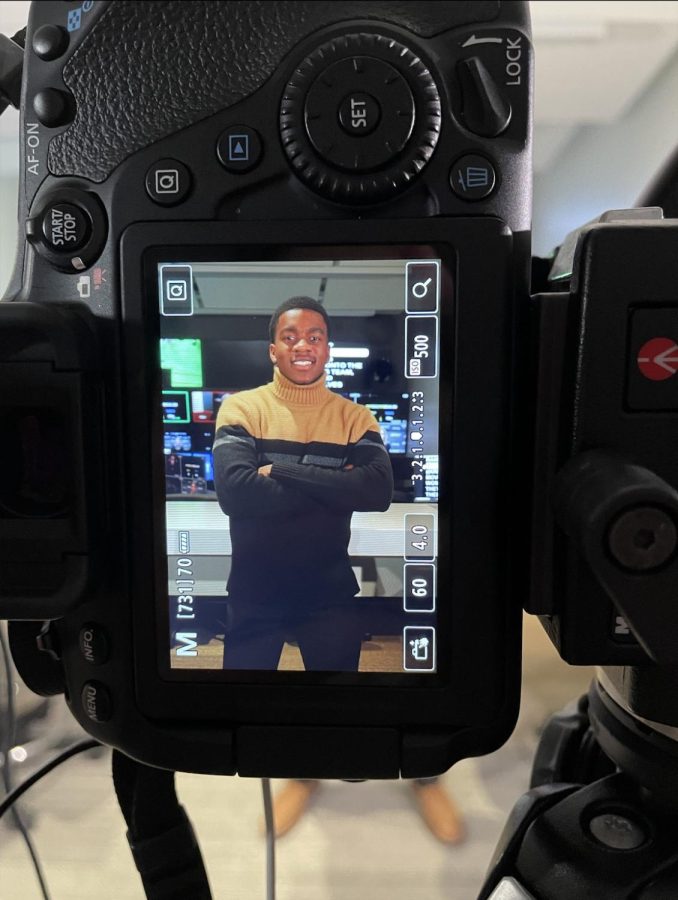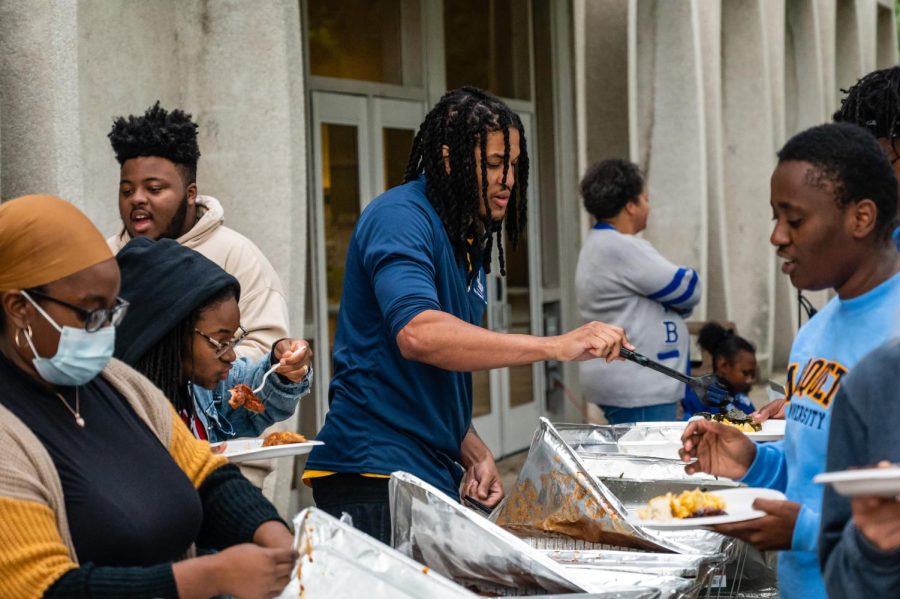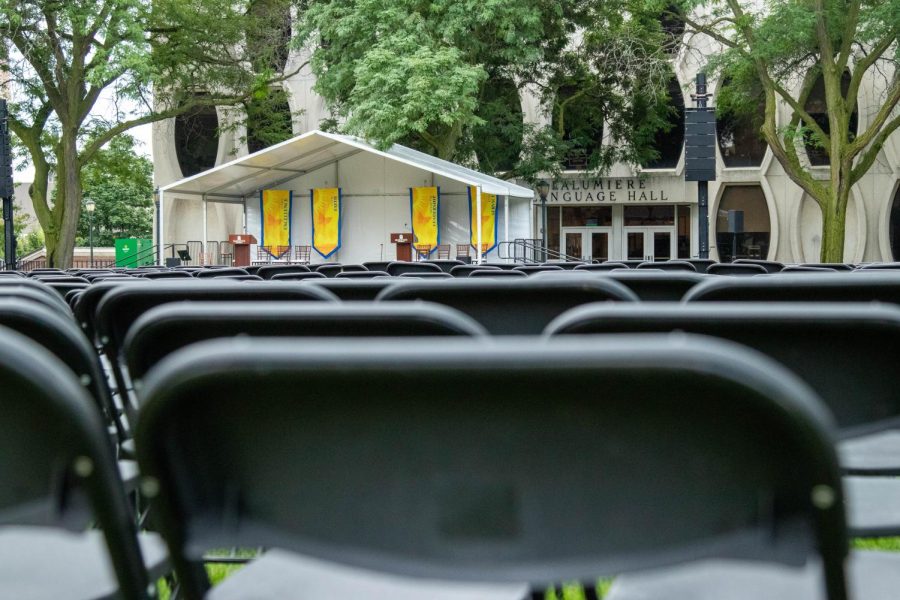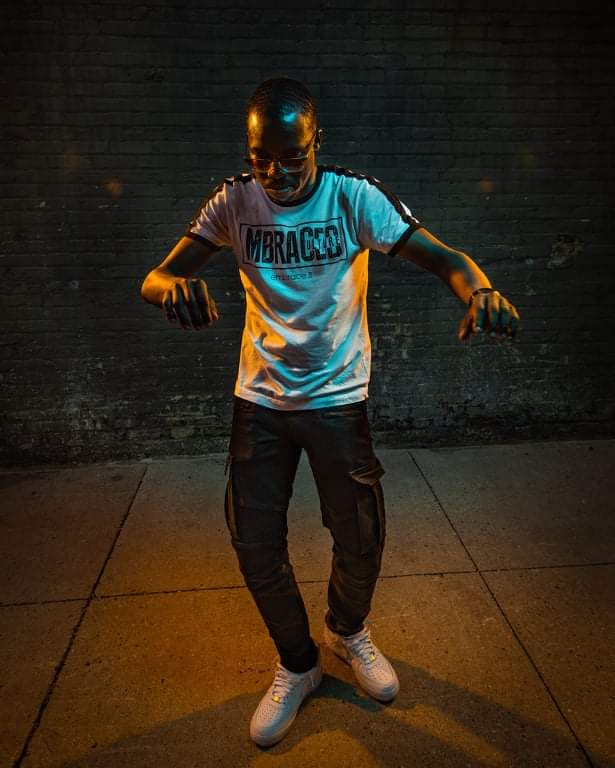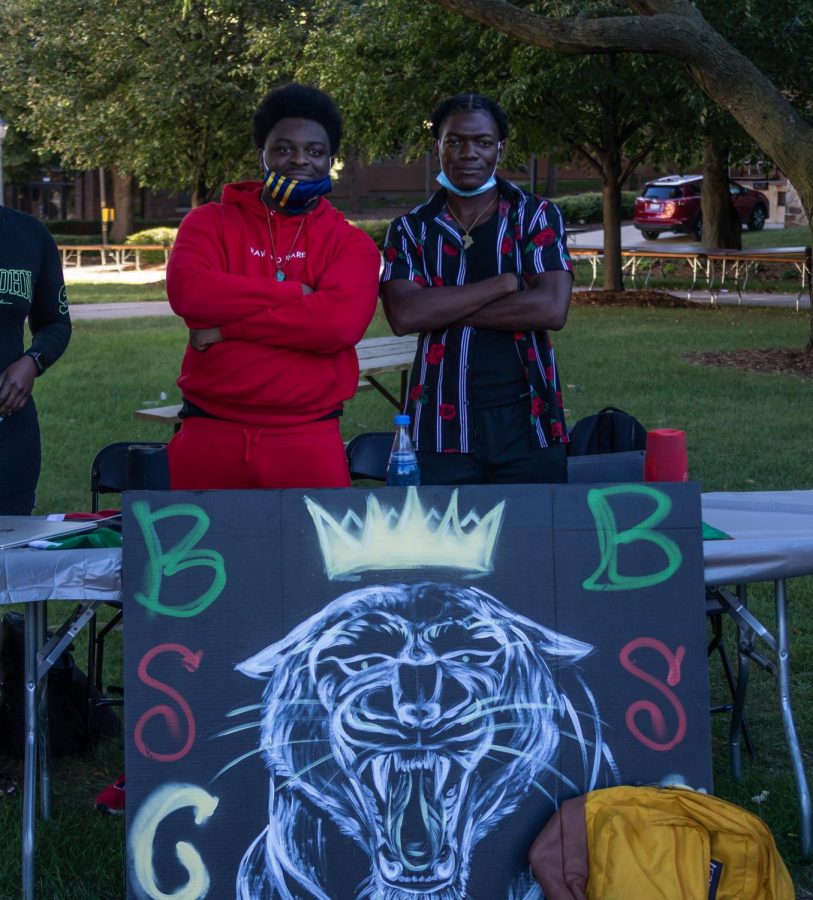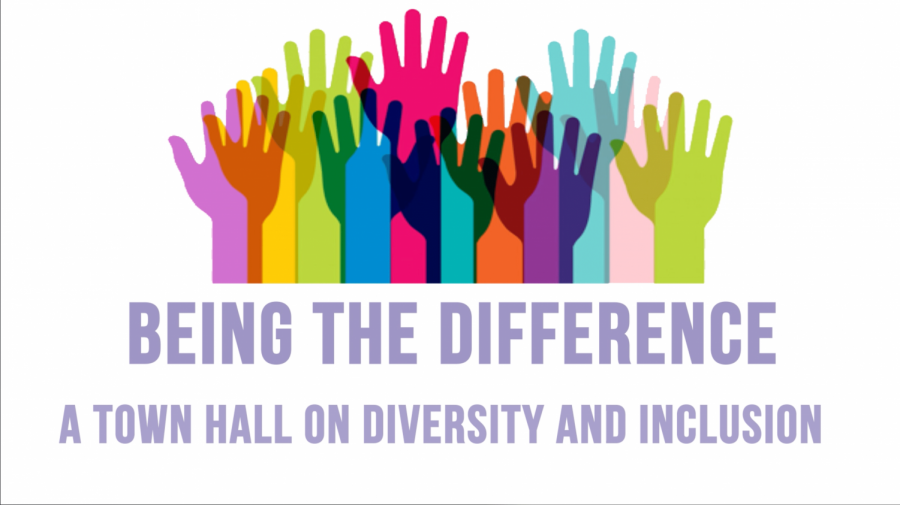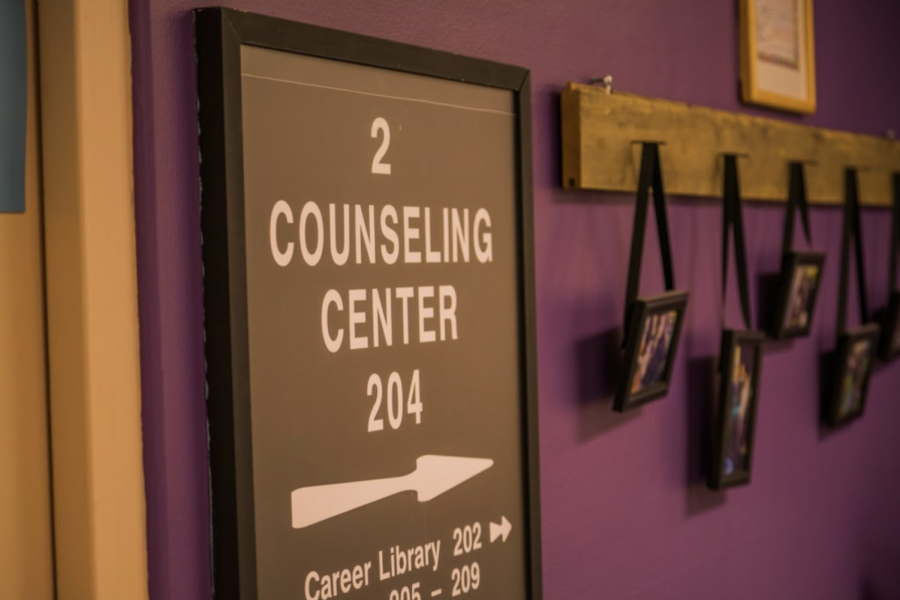20-year-old actress, model and activist Yara Shahidi is using her platform to encourage community and political engagement among her peers.
The “Grown-ish” star spoke to Marquette students about youth activism and racial justice at a talk organized in collaboration between Marquette University Student Government and Black Student Council Sunday at 7 p.m.
The discussion was held over Zoom, and was led by BSC president and senior in the College of Arts & Sciences Breanna Flowers. MUSG Programs Vice President Alex Schmidt introduced Flowers as the event moderator, while BSC vice president and junior in the College of Communication Lazabia Jackson introduced Shahidi. Students were able to join the Zoom remotely, or sign up ahead of time to watch on screen from the Alumni Memorial Union ballrooms.
Shahidi’s acting credits include starring in “Black-ish” and its spinoff series “Grown-ish,” as well as the 2019 film “The Sun is Also a Star.” In addition, she has been involved in activism work in recent years, including launching Eighteen x 18 in 2018, a platform with media company NowThis aimed to encourage her peers to vote in the 2018 midterm elections. Additionally, in 2017 she founded Yara’s Club, an online mentorship program created through partnership with The Young Women’s Leadership School focused on helping high school students fight poverty with education.
Just two days before the 2020 presidential election, the Zoom discussion focused on some topical social issues about what racial justice looks like.
MUSG and BSC partnered up last fall to bring Charlamagne tha God to speak at Marquette. Flowers said MUSG reached out to BSC again this summer to plan another speaker event between the two organizations. Flowers said Shahidi was one of the first people BSC wanted to try to bring to Marquette, so they were excited to see it happen.
While BSC and MUSG had originally attempted to set an earlier date for the discussion, Flowers said the fact that the talk ended up being scheduled so close to the election ended up working out well and “just being the way the world wanted it to be, I believe.”
One topic discussed was the usage of social media as an instrumental tool of some of the youth-led movements for social change.
Shahidi said that one benefit of social media is its ability to spread information in an accessible manner.
“The one thing that I’ve seen our generation do really well is leverage what we have to start telling stories that aren’t being told. I don’t know how many times I’ve learned about history that I’ve never seen come up in a textbook through a post or a thread that somebody’s put up,” Shahidi said.
As a self-proclaimed history nerd with a “total love” for the work of writer and activist James Baldwin, Shahidi has experience delving into books and essays regarding activism and social justice. However, she said that while in-depth literature on the topic offers much more information than a social media post, she recognizes that a summary on Twitter, Instagram or Facebook can be an especially effective tool for people that might not have the education or means necessary for extensive research. Social media, Shahidi said, makes that information accessible to the communities it most directly impacts.
Flowers said social media can include information that most media outlets are not sharing. She said that while in the past news outlets were more nonpartisan, she thinks it can be hard nowadays to navigate the truth. Flowers said she thinks social media provides opportunities to hear information and opinions directly from the mouths of trusted activists and individuals, who in the past had to go through the media to get their voices heard on television or in a newspaper.
Additionally, the discussion covered the importance of youth in social justice movements.
Shahidi is originally from Minneapolis, a city that found itself at the core of this summer’s movements for racial justice after Minneapolis man George Floyd died at the hands of a police officer in May. Protests and marches, many led by young Americans, have continued across the country for months. Shahidi said that throughout history, college-aged students have often been central to social movements. This is partly due to the fact, she said, that radical change requires “a youthful imagination” for what progress could look like, something that is difficult for individuals more deeply intertwined in society’s current systems.
Flowers and Shahidi also discussed the role of art in social movements. Flowers said music is one thing that helps her stay motivated and inspired in activism, mentioning a quote from rapper and producer Kendrick Lamar’s song “Prayer,” that “the earth is just a rock without the voices of art.”
“If we look at … historically, the role of art in this larger movement, you point to people like Kendrick (Lamar), Pulitzer prize-winning rapper and artist, incredible, who’s helping other artists make sure that they have control of their own music,” Shahidi said. “That is work of activism, especially when you know how many people who are predominantly Black and Brown are affected by … not owning their own content.”
Shahidi also pointed to Jamaican-American singer and actor Harry Belafonte and Bahamian-American actor Sidney Poitier as Black artists of Hollywood who used their platforms to get involved as activists in the Civil Rights Movement of the 1950s and 1960s.
“I mean, the list is endless of how many actors, actresses, blues musicians, were integral to helping spread the message of the civil rights movement. They really put their careers and lives on the line, but also they utilized their art,” Shahidi said. “In no way am I making myself out to be … Harry Bellafonte or Sidney Poitier, but the one thing that I do take from that is acknowledging the artistic lineage of Black art in being able to not only talk about worlds that we haven’t experienced, but also really powerfully talk about the world that we’re in.”
During the talk, Flowers brought up a specific episode of “Grown-ish.” In season 2 episode 19, students work to hire a Black counselor at their university. Flowers was a part of the same push at Marquette. In April 2019, Flowers and three other students created a petition to hire two Black psychologists at Marquette. Part of that goal was finally accomplished in September 2020, when Marquette hired Shakari “Kari” Lewis as the counseling center’s first counselor and coordinator for Black student support.
“It aired after we started our first petition to get a therapist, so it was pretty cool to see that,” she said. “It’s crazy that the things we are experiencing here, a lot of Black students are experiencing it across the nation, so much that it even took place on screen.”
Flowers said seeing a nearly identical experience represented on television and recognizing that many students of color at primarily white institutions have similar struggles helped give the Marquette students more hope as they worked to get the university to hire a Black therapist.
In the midst of a presidential election at the end of a year marked by a global pandemic and racial reckoning, Flowers said the discussion with Shahidi about Black lives, activism and the significance of being a college-aged student during these times was extremely timely and inspiring. At the same time, Flowers said these conversations need to still be had and work needs to continue after the election.
This sorry was written by Kelli Arseneau. She can be reached at kelli.arseneau@marquette.edu



